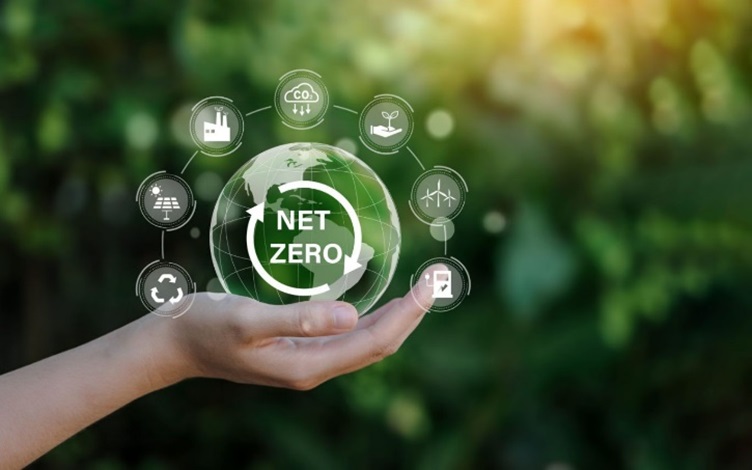Image source: https://s.net.vn/tXvo
1. Definition of “Net Zero”
“Net zero” is an ideal state where the amount of greenhouse gases emitted is balanced by the amount released from the atmosphere. This balance is also known as “net zero” emissions. This term can also be understood simply as not increasing the total emissions into the atmosphere (zero CO2 emissions).
2. “Net Zero” roadmap
- Case for limiting global warming to 1.5ºC: Net Zero for CO2 needs to be achieved between 2044 and 2052 and total greenhouse gas emissions must remain at zero from 2063 – 2068.
- Case for limiting global warming to 2ºC: Net zero CO2 emissions need to be achieved by 2070 (with a 66% chance of limiting warming to 2ºC) to 2085 (with a 50-66% chance of power). Total greenhouse gas emissions need to reach “Net Zero” by the end of the century or sooner.
3. Vietnam’s commitment
- Participating in the Paris Agreement on climate change, which took effect in 2016, Vietnam committed to reducing greenhouse gas emissions. Although it is a developing country but has an advantage in renewable energy, Vietnam will develop and deploy strong greenhouse gas emission reduction measures with its resources towards the goal of “Net zero” by 2050.
- In addition, Vietnam is committed to reducing methane emissions by 30% by 2030, committed to fighting forest degradation, and converting to clean energy.
4. Net Zero opportunity
- With strong commitments at the COP26 conference, Vietnam will welcome opportunities for sustainable economic development through low-emission growth, circular economy, and adaptation to climate change. This is a global development trend.
- In particular, Vietnam is a country with advantages in renewable energy. Therefore, Vietnam can attract green finance from the committed financial package from countries with 100 billion USD per year to develop a green economy, circular economy, and renewable energy, taking the lead – the movement of investment and credit flows of credit and financial institutions in the world.
5. Challenges in implementing “Net Zero” in Vietnam
- Currently in Vietnam, energy is the largest emission sector, 60% of emissions in 2020 come from the energy industry. Therefore, energy will be the industry that determines Vietnam’s “Net zero” goal.
- To achieve the “Net zero” goal by 2050, it is necessary to stop implementing new coal projects, as well as provide a roadmap to eliminate existing coal projects.
- https://tapchinganhang.gov.vn/giai-phap-thuc-hien-cam-ket-phat-thai-rong-bang-0-net-zero-vao-nam-2050-cua-viet-nam.htm
- https://moit.gov.vn/phat-trien-ben-vung/cuoc-dua-toi-net-zero.html



 Tiếng Việt
Tiếng Việt 日本語
日本語